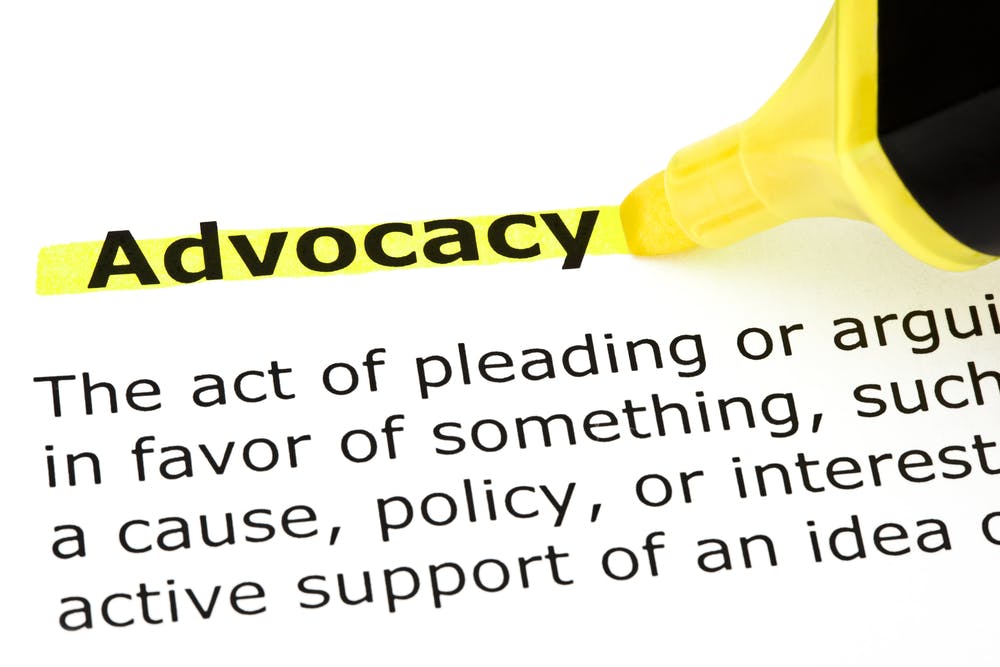For most of my long HR career in service industries, my colleagues and I believed our role to be an advocate for the employee. Those who spent their HR career in a collective bargaining environment may feel they advocate for the employer.
In Repurposing HR: From a cost center to a business accelerator, I highlight the role of advocate as one of eight “StopOvers” on the “RoadMap” – the process for becoming a business leader rather than a service provider. Here’s how I explained it:
The HR profession struggles to emerge from the “people person” image. Many of us went into the field because we liked working with people. The reality is that human resources plays two advocate roles, which often conflict:
- HR is an advocate of the organization. Are the people decisions the best decisions to be made for the organization?
- HR is also an advocate of the employees. Are we treating our employees consistently and fairly? If we are not, it will have a detrimental impact on the organization.
Fast forward a couple years. Let’s make it really powerful – we are fast forwarding beyond a time in US business history for which we should have been exceedingly embarrassed and learned the hard way about organizational ethics – the scandals of Enron and Worldcom, which set the stage for the 2002 Sarbanes-Oxley Act which, among other things, protected whistleblowers.
But we didn’t learn from that apparently because only a few years later, we find financial monkey business in the mortgage arena, which ultimately leads to the great recession.
An indictment of HR
Okay, enough history and back to the point of this article. Now we have Wells Fargo. After reading about the tales employees are telling now that the whole world knows about yet another scandal, I can really only shake my head. When an employee says something like this,
“That’s really scary when you’re with a big corporation like this and HR doesn’t have your back,” said the current employee, who wished to remain anonymous so as not to get fired as well.
it is an indictment of my profession and one that calls into question the role of HR as an advocate.
It is easy to get complacent in one role or another. As an employee advocate, HR can slip into dysfunctional enabling and destroy accountability. As an advocate for the employer, one can become deaf to the plight of the workforce.
Advocacy isn’t that simple, and it rarely is one or the other. Let’s take this explanation of the aim of advocacy:
Advocacy in all its forms seeks to ensure that people, particularly those who are most vulnerable in society, are able to:
- Have their voice heard on issues that are important to them.
- Defend and safeguard their rights.
- Have their views and wishes genuinely considered when decisions are being made about their lives.
In the case of Wells Fargo, it appears that HR did not do this well and leaned way too far into advocacy for the employer. I am blessed to have had a 40-year career in HR where I never felt pressure from my organization to do anything that violated my personal values. I would like to think I would have been strong enough to resist, had that occurred.
So what should HR do?
HR must do what’s right, what transcends any unilateral focus. HR must be an advocate for the employee and the organization by understanding clearly that allowing something that is not right to transpire is bad for both.
The Wells Fargo CHRO has 23 years at the organization, moving into the top role via compensation and benefits. (Technically she is Senior Executive Vice President, Chief Administrative Officer, and Human Resources Director, so has a scope that is broader than HR.) As an HR executive who came up through the compensation ranks, it’s difficult to believe that she didn’t know what was going on with the pressure to sell alone. The CNN article also says that employees wrote “several notes to HR” and many called the ethics hotline.
On the page with her bio, there is also a link to the Code of Ethics and the Vision and Values.
A new way to think of HR advocacy
So that balance of advocacy for the employee vs advocacy for the employer is perhaps confusing. What if we simplified it by saying that the HR advocacy role is simply to ensure that the actions of the organization are in alignment with the stated values and ethics?
I can’t imagine any organization being so stupid as to publish a set of values or code of ethics that allow wiggle room in honesty and integrity. Vision, mission and values statements are aspirational and usually public, so they will espouse what the organization wants everyone to think they are.
Assuming that is the case, can HR take up the mantra of helping the organization to live the stated values and ethics?
What that would have meant to Wells Fargo
The company offers a simple formula to follow: “We strive to be recognized by our stakeholders as setting the standard among the world’s great companies for integrity and principled performance. This is more than just doing the right thing. We have to do it the right way.”
Here’s what Wells Fargo’s ethics code says:

Had HR sought to ensure alignment with the policies in place, perhaps the situation would have been caught before 5,300 employees lost their jobs for violating policy.
Does it make sense to simplify HR’s advocacy role to say “ensure that the behavior of leadership and the workforce aligns to the vision, values and code of ethics of the organization.”
That is a little easier. But it takes courage. Real courage.
I can’t believe that the CEO and CHRO didn’t know. That makes me sad and angry.
